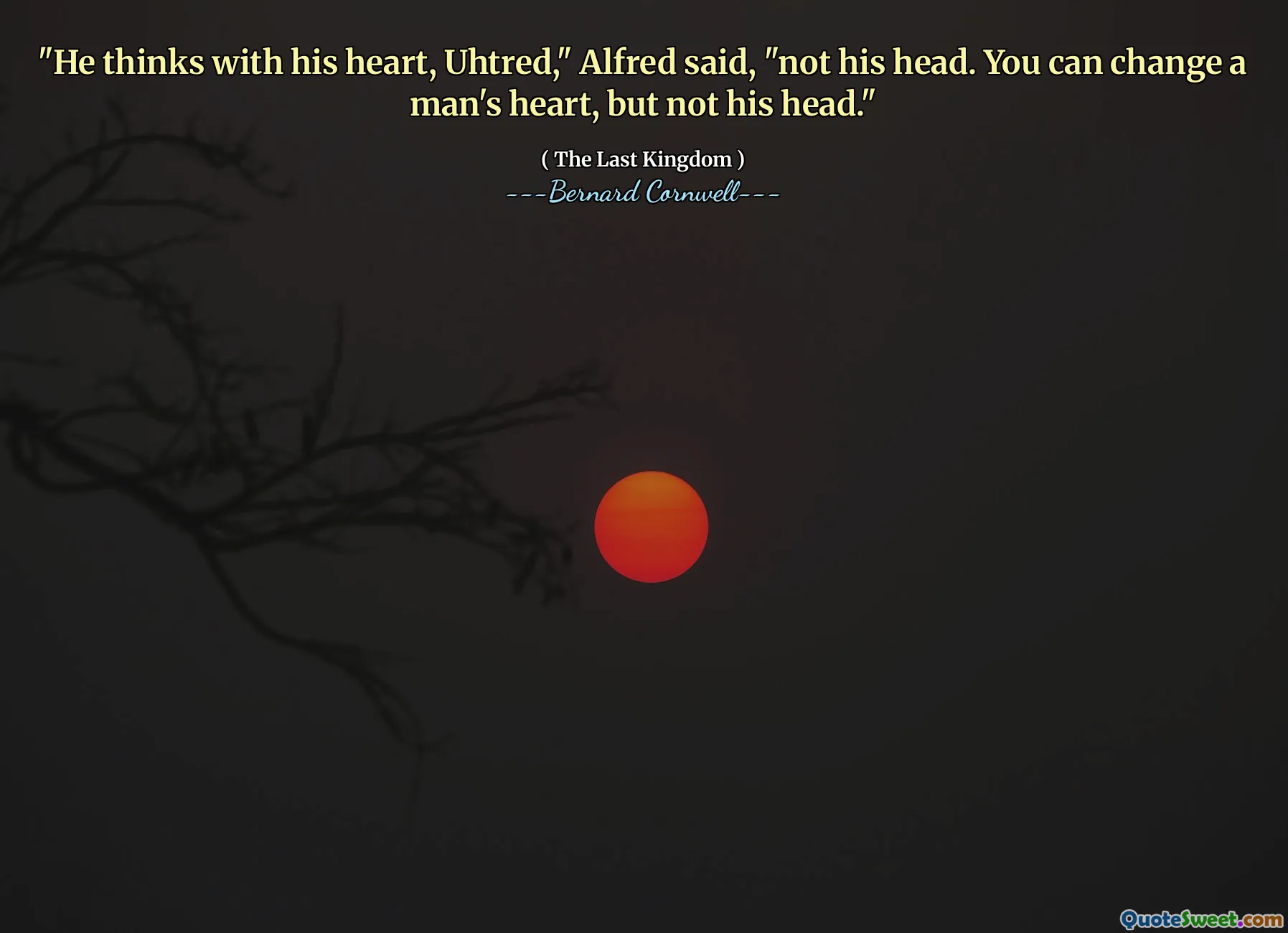
"He thinks with his heart, Uhtred," Alfred said, "not his head. You can change a man's heart, but not his head."
This quote from Bernard Cornwell's "The Last Kingdom" eloquently captures the profound distinction between the emotional and rational aspects of human nature. The idea that a man thinks with his heart rather than his head suggests that emotions and convictions often drive our decisions more powerfully than logic or reason. Alfred's remark highlights a common human experience: while beliefs rooted in rigid logic or intellectual frameworks can be stubbornly unyielding, it is in the emotional core—the heart—where true transformation can occur. Changing someone's mindset purely through intellectual argument often encounters resistance due to deeply-held reasons or biases. However, appealing to empathy, passion, and emotional values can facilitate genuine change in perspective or behavior, because the heart is more malleable and open to influence.
Moreover, the subtle dichotomy portrayed here reflects on leadership, persuasion, and personal growth. Leaders and influencers who seek to inspire change must address the heart to be truly effective. This quote also invites introspection: do we lead from our heart or our head? Recognizing that the heart governs our deepest motivations can help us approach others with patience, understanding that change is more about emotional connection than intellectual debate.
In a broader philosophical context, the quote echoes the age-old tension between reason and emotion that has preoccupied thinkers and writers for centuries. It acknowledges the complexity of human nature, suggesting that while logical reasoning is essential, it is the heart that ultimately molds who we are and how we change. Thus, Alfred's insight is a timeless reminder of the power of empathy and emotional resonance in human interactions.









